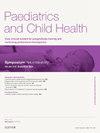难治性哮喘:重新审视基本管理原则
Q3 Medicine
引用次数: 0
摘要
难以治疗的儿童哮喘仍然是一个重大的临床挑战,往往导致高昂的医疗费用和不良的结果。尽管许多转介到专科中心,基本的管理原则往往被忽视,过早升级到高剂量皮质类固醇。这篇综述强调了对儿童哮喘采取系统方法的重要性,首先要使用客观测试(如肺活量测定法和分数呼气一氧化氮(FeNO))进行准确诊断,并仔细排除其他或共存的诊断。优化依从性、吸入器技术和环境控制,以及识别合并症,如过敏性鼻炎、肥胖和呼吸功能障碍,可以显著改善大多数病例的结果,而无需先进的治疗方法。综合教育、心理支持和个性化哮喘行动计划的多学科团队方法至关重要。对于患有真正严重的治疗性哮喘(STRA)的儿童,当传统疗法失败时,特别是在可改变因素无法纠正的情况下,生物制剂提供了有希望的控制。然而,它们的使用应该遵循彻底的评估和共同的决策。最终,在初级和二级环境中加强基础哮喘护理可以防止进展到专科转诊,并减少直接和间接的卫生保健负担。解决可改变的因素使70%以上的难治性哮喘儿童获得良好控制,强调需要重新审视和加强核心管理策略。本文章由计算机程序翻译,如有差异,请以英文原文为准。
Difficult-to-treat asthma: revisiting essential management principles
Difficult-to-treat asthma in children remains a significant clinical challenge, often resulting in high healthcare costs and poor outcomes. Despite many referrals to specialist centres, basic management principles are frequently overlooked, with premature escalation to high-dose corticosteroids. This review highlights the importance of a systematic approach to paediatric asthma, beginning with accurate diagnosis using objective tests such as spirometry and fractional exhaled nitric oxide (FeNO) and careful exclusion of alternative or co-existing diagnoses. Optimizing adherence, inhaler technique and environmental control—alongside identifying comorbidities such as allergic rhinitis, obesity and dysfunctional breathing—can dramatically improve outcomes in most cases without requiring advanced therapies. A multidisciplinary team approach, incorporating education, psychological support, and personalized asthma action plans, is essential. For children with truly severe therapy-resistant asthma (STRA), biologics offer promising control when traditional therapies fail, especially where modifiable factors are non-correctable. However, their use should follow thorough evaluation and shared decision-making. Ultimately, reinforcing fundamental asthma care in primary and secondary settings can prevent progression to specialist referral and reduce both direct and indirect healthcare burdens. Addressing modifiable factors enables over 70% of children with difficult asthma to achieve good control, emphasizing the need to revisit and reinforce core management strategies.
求助全文
通过发布文献求助,成功后即可免费获取论文全文。
去求助
来源期刊

Paediatrics and Child Health (United Kingdom)
Medicine-Pediatrics, Perinatology and Child Health
CiteScore
1.20
自引率
0.00%
发文量
70
 求助内容:
求助内容: 应助结果提醒方式:
应助结果提醒方式:


